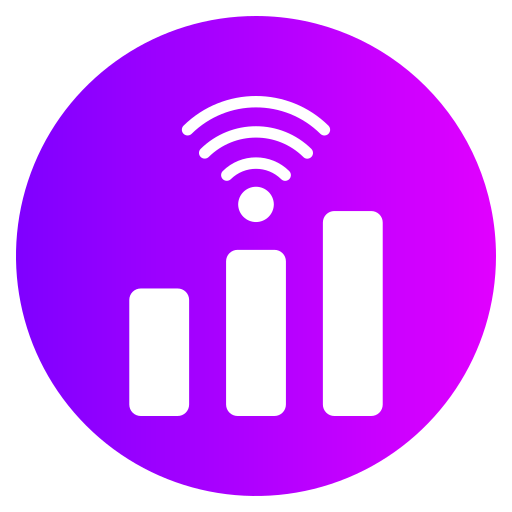Guides
What is Blockchain?
Understanding Blockchain Technology: What You Need to Know
Blockchain technology has emerged as one of the most revolutionary innovations of the digital age, promising to transform various industries and redefine the way we exchange value and data. But what exactly is blockchain, and how does it work?
At its core, blockchain is a decentralized and distributed ledger technology that enables secure and transparent record-keeping of transactions across a network of computers. Unlike traditional centralized systems where a single authority controls the database, blockchain operates on a peer-to-peer network, allowing every participant to have a copy of the ledger.
The term "blockchain" refers to the structure of data storage within the system. Transactions are grouped into blocks, which are then linked together in chronological order, forming a chain. Each block contains a cryptographic hash of the previous block, creating an immutable and tamper-resistant record of transactions.
One of the key features of blockchain is its security. Transactions recorded on the blockchain are cryptographically secured, making it extremely difficult for anyone to alter the data without consensus from the network. This makes blockchain particularly well-suited for applications requiring trustless and transparent transactions, such as financial services, supply chain management, and voting systems.
Another important aspect of blockchain is its decentralization. Since the ledger is distributed across multiple nodes in the network, there is no single point of failure. This not only enhances security but also increases resilience and reduces the risk of censorship or manipulation.
Blockchain technology has found widespread applications beyond cryptocurrencies like Bitcoin. Industries ranging from finance and healthcare to logistics and real estate are exploring ways to leverage blockchain for streamlining processes, reducing costs, and improving transparency.
Smart contracts, self-executing contracts with the terms of the agreement directly written into code, are another innovation made possible by blockchain technology. Smart contracts enable automated and trustless execution of transactions, eliminating the need for intermediaries and reducing the potential for disputes.
Despite its potential, blockchain technology is not without challenges. Scalability, interoperability, and regulatory uncertainty are among the issues that need to be addressed for widespread adoption. Additionally, concerns about energy consumption associated with proof-of-work consensus mechanisms, used by some blockchain networks like Bitcoin, have sparked debates about sustainability.
In conclusion, blockchain technology represents a paradigm shift in how we store, manage, and exchange data and value. Its decentralized, secure, and transparent nature opens up a world of possibilities for innovation and disruption across various industries. As the technology continues to evolve and mature, it holds the promise of transforming the way we interact and transact in the digital age.
You May Like this Articles
- Can I make money from Bitcoin trading?
- Bitcoin Price Dynamics: Understanding Volume, Market Cap, and Price Determinants
- Bitcoin: A Comprehensive Guide to Understanding the Basics, Creation, Functionality, and Acquisition
- Crypto whale tracking : WhaleAlertz.com. Find Bitcoin Whales, Transactions, Blocks, Alerts
- What is the role of miners in the Bitcoin network?
- What are Bitcoin whales and why are they important in the cryptocurrency market?
- Demystifying Bitcoin Transactions: How Does Sending Bitcoin Work?
- What is Bitcoin Block Weight?
- What is Bitcoin Halving?
- Bitcoin Halving: A Comprehensive Guide to Understanding its Significance, Impact, and Implications
- The Genesis of Bitcoin: Unraveling the Mystery of Satoshi Nakamoto and the Birth of a Digital Revolution
- Bitcoin Whales: Who They Are and How They Affect the Market?
- What is a whale alert?
- Bitcoin Genesis Block and the Enigma of Satoshi Nakamoto
- What is Bitcoin Block Difficulty?
- How does the Bitcoin halving event impact the supply of new bitcoins?
- Bitcoin Whale Watching Made Simple: Tracking Bitcoin Whales with WhaleAlertz.com
- Understanding the Impact of the Bitcoin Mempool on Transactions
- Bitcoin Halving Details
- What is Bitcoin rich list?
- Exploring Bitcoin Forums: A Hub for Community, Knowledge, and Discussion
- Safeguarding Your Digital Fortunes: Tips for Securing Bitcoin Holdings
- Understanding Bitcoin Blocks: The Building Blocks of Blockchain
- Unearthing Digital Gold: A Beginner's Guide to Bitcoin Mining
- Tracking Crypto Whales: Understanding Their Impact on the Market
Latest Articles
-
Navigating the Bitcoin Rich List: Insights into Richest Transactions and Whale Movements
-
Bitcoin Price Dynamics: Understanding Volume, Market Cap, and Price Determinants
-
What factors contribute to the increase in bitcoin blockchain size over time?
-
What is Bitcoin rich list?
-
Top Bitcoin Wallet Addresses 2024 (Bitcoin Richlist) : Insights into Crypto Wealth Distribution
-
Exploring Bitcoin Forums: A Hub for Community, Knowledge, and Discussion
-
What is a Crypto Airdrop?
-
What is Blockchain?
-
Bitcoin Halving Details
-
The Genesis of Bitcoin: Unraveling the Mystery of Satoshi Nakamoto and the Birth of a Digital Revolution
-
What is Wallet Address?
-
Bitcoin Halving: A Comprehensive Guide to Understanding its Significance, Impact, and Implications
-
How to use a Bitcoin blockchain explorer?
-
What is Bitcoin Halving?
-
Understanding the Impact of the Bitcoin Mempool on Transactions
-
Bitcoin Scams: Protecting Yourself from Fraud
-
Understanding Bitcoin Blocks: The Building Blocks of Blockchain
-
Bitcoin Whales: Who They Are and How They Affect the Market?
-
What is Block Nonce in Bitcoin?
-
What is Bitcoin Block Weight?
-
What is the Coinbase hex in a Bitcoin block, and how is it structured?
-
What is the role of miners in the Bitcoin network?
-
What is the transaction per second (TPS) rate of the Bitcoin network?
-
Bitcoin Price in India (BTC/INR: Convert Bitcoin (BTC) to Indian Rupee (INR))
-
What is a whale alert?



.png)




